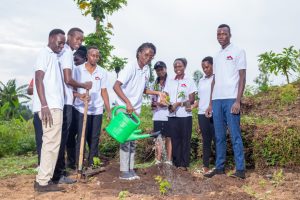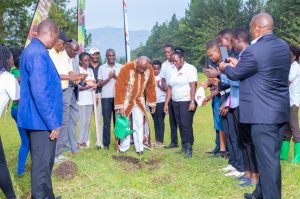Mbale — Equity Bank Uganda, in partnership with the Umukuka wa Bugisu—the cultural leader of the Bamasaba—and Gro Foundation, has launched a large-scale tree planting initiative aimed at decarbonising dumping sites and enhancing environmental conservation across the Bugisu subregion.
The project, which will cover eight acres around the main dumping site in Mbale City, seeks to establish natural carbon sinks to make the city greener, safer, and more resilient to the impacts of climate change. It also aims to prevent disasters similar to those that occurred at Kampala’s Kitezi landfill.
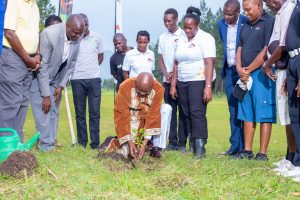
Equity Bank has committed Shs60 million to the initiative, which targets the planting of 60,000 trees across Bugisu by the end of 2026. Gro Foundation, a nonprofit organisation specialising in reforestation, will provide technical support to ensure the selection, planting, and long-term care of native tree species.
The program was officially launched on Saturday by the Umukuka during celebrations marking his two years as head of the Bugisu Kingdom. Speaking at the event, Virginia Ssemakula, Equity Bank’s Manager for Energy, Environment and Climate Change, said the bank’s contribution to environmental sustainability reflects its broader vision.
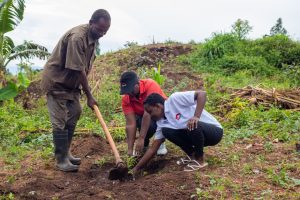
“At Equity, we believe it is our responsibility to go beyond banking. That’s why we are heavily invested in energy and environmental initiatives,” she said. “We are investing in healthier communities and a more sustainable future, reflecting our vision of growing not only financial prosperity but also environmental resilience.”
Lydia Apeduno, the Mbale City Council Composite Manager, emphasised the environmental benefits of the project. “Dumping sites often emit gases such as carbon dioxide. These trees will help in carbon reduction and also serve as demarcations to prevent encroachment,” she said.
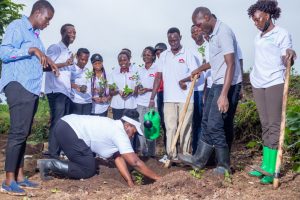
The initiative will also support agricultural and socio-economic transformation in Bugisu by improving soil health, conserving water, and boosting farm resilience against climate change. Farmers are expected to benefit from food, fodder, and additional income sources derived from the trees.
Laban Musinguzi of Gro Foundation highlighted the wider impact of the project. “Integrating trees into farming systems helps control soil erosion, manage pests and diseases, and create a more diverse and productive ecosystem,” he said. “This is not just about planting trees but about planting hope—securing the environment and protecting the climate for generations to come.”
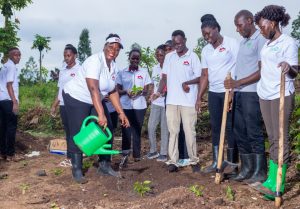
The initiative underscores Equity Bank’s commitment to environmental protection as part of its Environmental, Social and Governance (ESG) strategy. Nationwide, the bank has set an ambitious target to plant 35 million trees by 2026, aligning financial growth with environmental stewardship.
